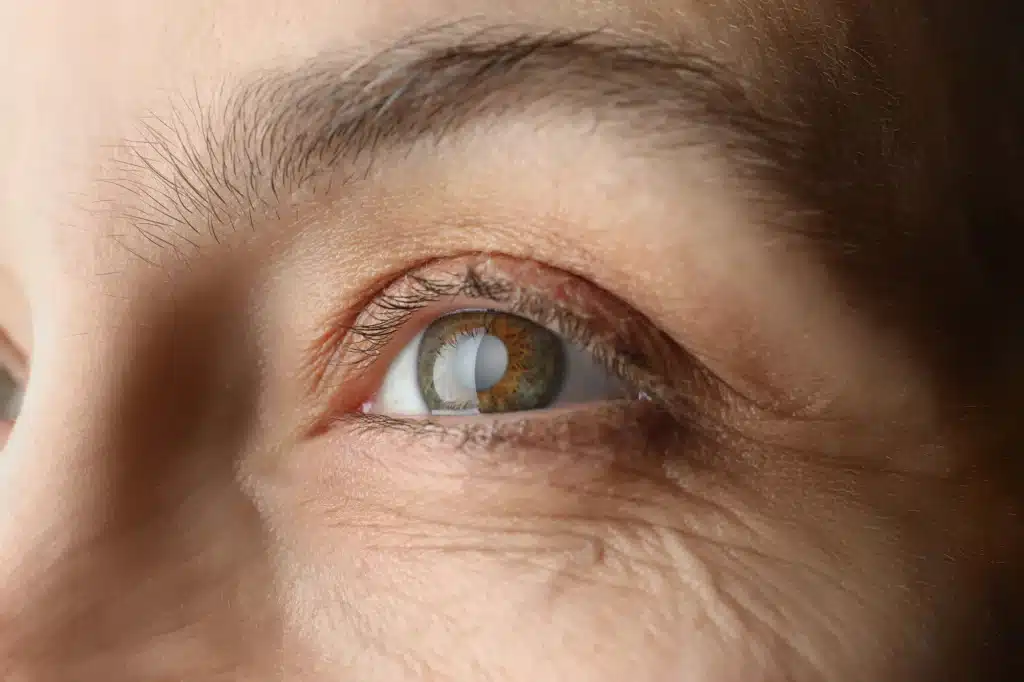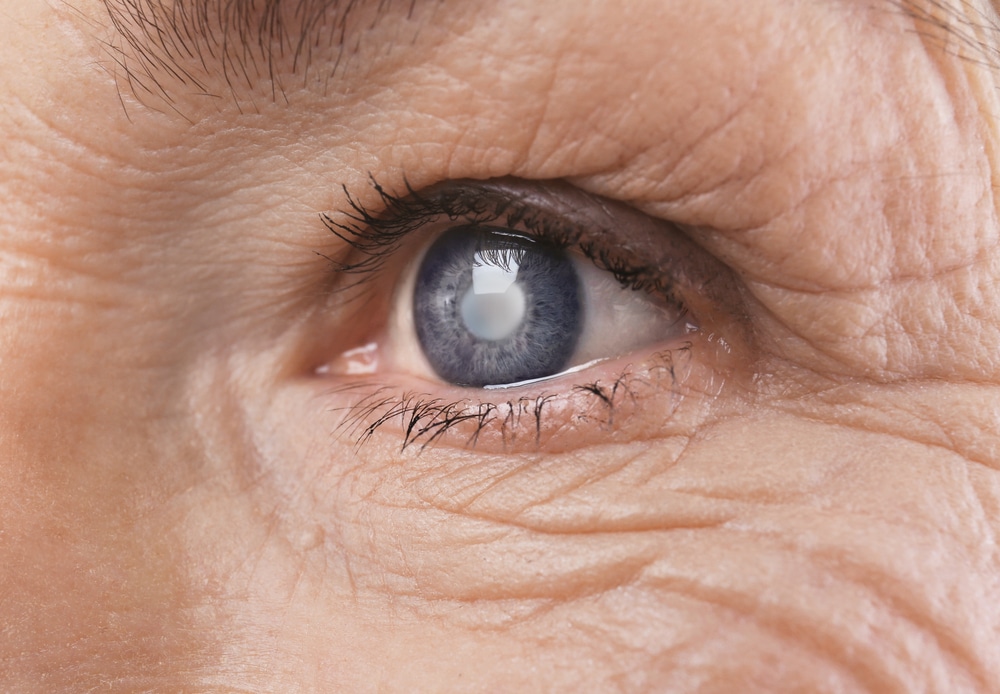Medically Reviewed by: Mark L. Mayo, M.D.
Fast-Growing Cataracts and How to Fight Them
“Fast-growing cataracts?” “Aggressive cataracts?” “Fast-developing cataracts?” If you’ve grown accustomed to the prevailing myth that cataracts grow slowly over time, you may find yourself confused when you hear these terms.
It’s true that most cataracts develop at a more sluggish pace, making them easier to diagnose and treat before they grow too harmful. But if you’re wondering, “Can cataracts progress rapidly?” then the answer is, unfortunately, yes. Certain activities or conditions do increase your likelihood of developing intrusive, fast-growing cataracts. However, treatment options are available, such as laser treatment for cataracts and iStent surgery.
Aggressive cataracts are disruptive to your day-to-day life, but they aren’t an insurmountable obstacle. Your vision can be restored with the help of Eye Center of Texas.
Slow-growing vs. fast-growing cataracts
There are three common types of cataracts named for their location in relation to the eyes’ lenses. Nuclear cataracts (also referred to as nuclear sclerotic cataracts) and cortical cataracts are the slower-moving conditions that people tend to think of when they think of cataracts. Both types of cataracts can become more problematic with age if left untreated.
Nuclear cataracts develop in the nucleus or the center of the lens. By contrast, cortical cataracts occur on the outside — the cortex — of the lens.
The third common type of cataract, posterior subcapsular cataracts, occurs in the backmost layer of the cortex beneath the lens capsule. Unlike nuclear cataracts and cortical cataracts, this condition appears more frequently in younger people and tends to develop much faster.
What causes fast-growing cataracts?
Certain conditions and environments can facilitate cataract development and create their own incidents of aggressive, fast-growing cataracts. While less common than the three major types of cataracts, they can still be incredibly problematic and may require surgical intervention to correct.
Some causes of fast-growing cataracts include, but are not limited to, the following:
- Diabetes: Also called “diabetic snowflakes” because of their shape and gray-and-white opacity, diabetes-related cataracts occur when an enzyme converts too much glucose into sorbitol, which affects lens clarity.
- Trauma: Trauma-related cataracts occur as a result of your eye enduring either blunt or penetrating trauma that disrupts your lens fibers. These types of cataracts are typically the most fast-growing variety a patient may experience.
- Radiation: Radiation-related cataracts, sometimes listed under trauma-related cataracts, occur after the lens has been exposed to radiation. Exposure to high levels of radiation can result in clouded vision in as little as two years. Exposure to lower levels of radiation can take over a decade to affect vision, making it one of the slower-moving cataracts on this list.
- Congenital: Congenital cataracts are present at birth, and may or may not move fast based on the child’s genetics. Milder examples of this cataract type can correct themselves over time, especially if they don’t impede vision.
It’s important to note that any type of cataract, whether it be an aggressive and fast-growing variety or the result of natural aging, will grow opaque more quickly in individuals who smoke or regularly use corticosteroids.
Treatment for fast-growing cataracts
Patients diagnosed with fast-growing cataracts almost always want to know how to slow their growth. Cataracts can be reversed to restore vision, especially if caught early and/or slow growing.
Laser treatment for cataracts is available, as is iStent surgery and blade-free cataract surgery. Your doctor will be able to tell you the correct path forward based on a few different factors, including (but not limited to) the following:
- Age
- Overall physical health
- Overall eye health
- Progression of your cataracts
- Source of your cataracts
- Any medications you may be taking
iStent surgery, it should be noted, often works best for instances of cataracts in patients who also deal with glaucoma.
Cataract surgery safety
Understandably, one of the first questions we hear is, “How safe is cataract surgery?” Whether you need to undergo a procedure for slow- or fast-growing cataracts, nuclear cataracts, cortical cataracts, or other conditions, your options are all safe, scientifically backed, and conducted using full ophthalmological industry standards.
Every surgery still comes with side effects and risks, even the safest procedures available. Your surgeon will be able to give you details about all the ins and outs of the different options you may need to consider when getting your cataracts treated. Fortunately, all cataract surgeries are generally considered low-risk for the majority of patients.
Cataract surgery cost
One of the other major questions we hear is, “How much is cataract surgery?” The good news is, most private insurance companies, as well as Medicare, cover the majority of expenses associated with these procedures.
We don’t believe that cost should be a barrier to receiving quality eye care. Before you commit to a surgical procedure with us, please review our financing options available as well as our accepted insurance list.
Cataract prevention
Anyone can contend with cataracts, though some people are more predisposed to the condition, including:
- People over the age of 40
- People who live in high altitudes
- People with a family history of cataracts
- People who have been exposed to large amounts of radiation, including UV light from the sun
- People with high blood pressure
- People with a history of eye injury
- People who take steroids, regardless of whether or not the medication has been prescribed
- People with obesity
- Diabetics
- Smokers
If you’ve ever wondered, “Can you prevent cataracts?” then you’ll be relieved to know that it’s possible. Scheduling regular eye exams and speaking with your doctor about your risk factors and how to address them is the top way to prevent cataracts.
Even if you end up developing slow- or fast-growing cataracts, taking the precautionary steps can still help with reducing the severity of your symptoms.
Find treatment for fast-growing cataracts at Eye Center of Texas
At Eye Center of Texas, we pride ourselves on having given thousands of Houstonians clear and renewed vision. In fact, over 275 Houston-area eye doctors refer their patients to us when they have questions about fast-growing cataracts and require safe, high-quality surgical options.
If you need to figure out which cataract surgery is right for your unique needs, please schedule an appointment at Eye Center of Texas today. We’re here to help you find lasting relief from cataracts and other eye conditions and diseases.
More Helpful Articles by Eye Center of Texas:
- What to Expect During EVO ICL Recovery
- Corneal Cross-Linking Success Rate
- Bifocal LASIK: Can LASIK Make You Bifocal-Free?
- How to Choose Between LASIK Surgery Options
- Can You Use Your FSA or HSA for LASIK?
Related Articles
Financing Options Available
Apply today to find a financing option that meets your needs.
Our Locations
Houston/Bellaire
6565 W. Loop S., Suite 650Bellaire, TX 77401
Medical Office:
713-797-1010
Medical Fax:
713-357-7276
LASIK/Near Vision:
Office: 713-395-1515
Fax: 713-357-7278
Pasadena
4415 Crenshaw RoadPasadena, TX 77504
Medical Office:
281-977-8800
Medical Fax:
281-977-8877
Sugar Land
15400 S.W. Freeway, Suite 301Sugar Land, TX 77478
Medical Office:
281-277-1010
Medical Fax:
281-277-4504
Clear Lake
455 E. Medical Center Blvd., Suite 110Webster, TX 77598
Medical Office:
281-332-1397
Medical Fax:
281-282-9152
Katy
Greenhouse Medical Plaza2051 Greenhouse Road, Suite 110
Houston, TX 77084
Medical Office:
713-797-1010
Medical Fax:
713-357-7276
The Woodlands/Conroe
100 Medical Center Blvd., Suite 118Conroe, TX 77304
Medical Office:
713-797-1010
Medical Fax:
936-647-1620


